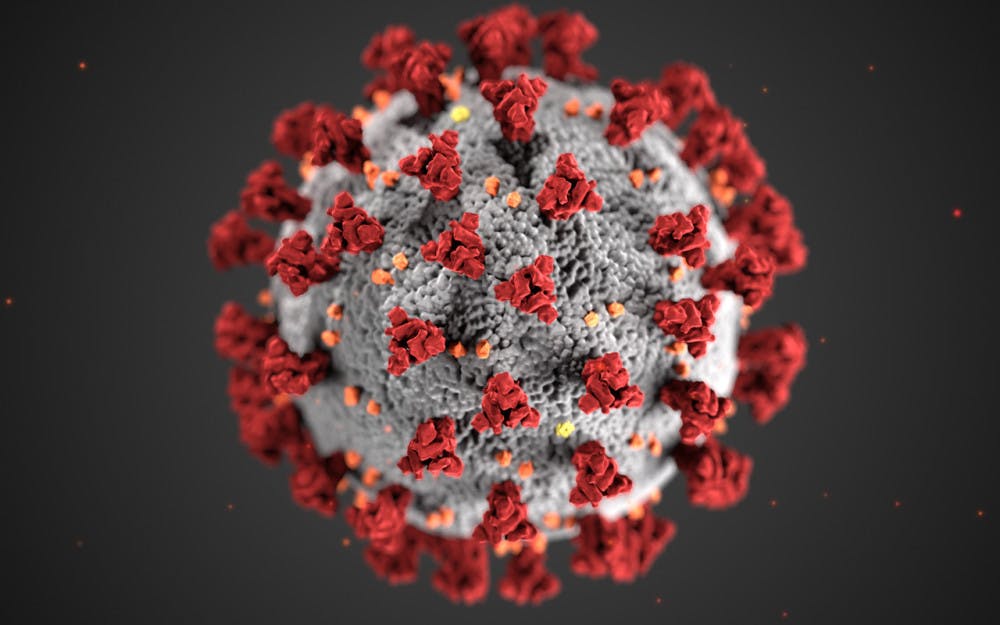Editor's Note: If you think you might have COVID-19, contact the Alachua County Health Department at (352) 334-7900 or the Student Health Care Center at (352) 392-1161. The Alligator doesn’t have information about the names of these county and UF patients due to the Health Insurance Portability and Accountability Act, more commonly known as HIPAA, which protects patient privacy.
When UF canceled a Spring study abroad program in Italy due to COVID-19 concerns, the students overseas unsuccessfully petitioned to stay. Now, at least two of these students admit that the university did what was best.
The Vincenza Institute of Architecture program participants wrote the petition because they not only wanted the “free will to decide” whether to stay in Italy, but they were also concerned about potentially exposing others to the virus upon their return to the United States.
However, the COVID-19 outbreak worsened in both countries since then. Italy surpassed China as the country with the most coronavirus deaths, and the confirmed cases in the United States jumped from 34 on Feb. 21 to more than 31,000 as of Sunday afternoon.
“Hindsight is definitely 20/20,” Alison Hochman, a 21-year-old UF architecture senior, said. “I’m very grateful to be back in the United States and to not be in Italy at this point.”
But Kerol Kaskaviqi, another one of the students in the program, said her experience transitioning back to normal wasn’t as easy. As an international student from Albania, she first had to travel from Italy back to her home country to receive necessary travel documents.
Although she said the program termination was “perfectly understandable,” the 23-year-old architecture senior said she disagreed with how quickly UF changed the messages in their statements.
Kaskaviqi said that what was once expressed in emails as an “encouraged self-quarantine for the students” became mandatory.
“If you promise something and then change it to say something else, it’s not really a promise,” Kaskaviqi said.
International students in campus housing find it difficult to leave
It seemed like everyone in Matina Mahasantipiya’s residence hall suddenly left. Within a day, it became a ghost town.
UF President Kent Fuchs urged students to leave Gainesville after Gov. Ron DeSantis announced that four UF students tested positive for COVID-19. The university announced seven more cases in the UF community Sunday — six students and one faculty member — bringing the total to 11. But for some, going home isn’t the best option or an option at all.
For Mahasantipiya, a 19-year-old UF computer science sophomore living in Murphree Hall, home is Chiang Mai, Thailand. She has to carefully budget trips home because she relies financially on scholarships, she said.
“I was just worried about if I had to leave, then how would I do so,” she said.
The U.S. State Department issued a Level 4 “do not travel” global advisory Thursday, the agency’s top warning. It recommends that all U.S. citizens return home or stay where they are, according to the New York Times.
Thailand requires people traveling from China, Korea, Hong Kong, Macau, Italy and Iran to present proof of insurance coverage of at least $100,000 and that they tested negative before their trip, among other restrictions.
Emails from Mahasantipiya’s and her dorm’s resident assistant assuring the university wouldn’t force students to leave helped ease some of her worry, she said.
If the university shuts down and requires her to leave, she plans to stay with a friend in Florida. But some students don’t have that option, Mahasantipiya said, and the university should help those students find alternative housing off campus if it closes.
UF spokesperson Steve Orlando said the university will leave campus housing open, and additional funding will be allocated for the Aid-a-Gator program and the Field and Fork Pantry to help international students.
Another UF student said he feels safe on campus now because everyone has left.
Morteza Rostami, a 35-year-old mechanical engineering doctoral student from Iran, lives in Diamond Village, which is an apartment style on-campus housing facility.
“I’m feeling good now,” he said.
But Rostami said he is worried about the future of the research he does on thermal cooling in the Nanoscale Research Facility on campus, which supplies half of his financial income.
The building is still open but much of the staff has left, Rostami said. He can’t continue the research on his own for long because he isn’t trained on all of the equipment.
Iranian authorities limited travel between major cities and suspended schools and major events, according to BBC. Iran has the fourth-highest number of cases in the world and the third highest number of deaths, according to CNN.
Rostami can’t go to his country because the border is closed and he has work to do here, he said. He’s not going to leave.
Contact Samantha Chery and Chasity Maynard at schery@alligator.org and cmaynard@alligator.org. Follow them on Twitter @SammyChery4276 and @chasitymaynard0.
Coronavirus Disease 2019 (COVID-19)






